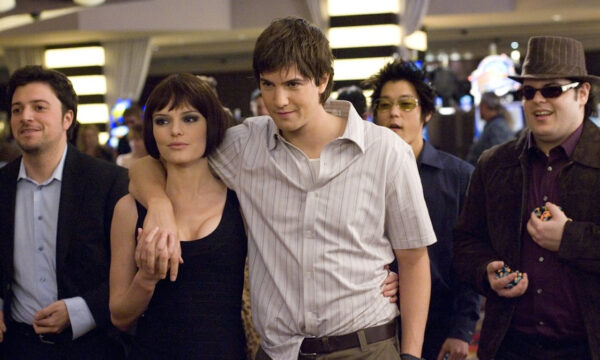The resurgence of board and card games in modern culture

The resurgence of board and card games, including favourites like poker, marks a vibrant renaissance in modern culture. These games, traditionally viewed as family pastimes or casual diversions, now enjoy a prominent place within popular entertainment, particularly among millennials. This demographic values the strategic depth, social interaction, and nostalgic appeal that these games offer. As board and card games regain cultural significance, they attract a diverse audience, challenging outdated perceptions and underscoring their contemporary relevance. This revival enriches entertainment options, fosters community ties, and encourages intellectual engagement, making these games more than just leisure activities. They are now integral, dynamic elements of modern culture, connecting people across generations and backgrounds. This trend reflects a broader movement toward inclusive, strategic, and community-oriented entertainment options in today’s society.
Board and card games in films and media
The depiction of board and card games in films and television has been instrumental in their cultural revival. These games, including online poker, are often shown as intellectually engaging and thrilling moving away from the outdated view that they are just for children or mere diversions. For example, chess has frequently been portrayed in films as a game of intense psychological battle, mirroring the complexities of real-life decisions and challenges.
Throughout the late 20th and early 21st centuries, both board and card games have found their way into television narratives, serving as central themes or crucial plot elements. These portrayals have highlighted the intricacies and enduring appeal of the games, attracting a diverse audience of both newcomers and long-time enthusiasts.
Inclusivity and diversity in board and card gaming
Aligning with broader societal movements toward inclusivity, the modern portrayal of board and card games in media has increasingly focused on diversity. There has been a noticeable increase in the representation of diverse players, including more significant roles for women and individuals from various cultural backgrounds. This shift challenges the old stereotype of gaming as a niche, predominantly male hobby. By showcasing a more inclusive gaming community, these games have welcomed a broader audience, enriching the social fabric of the gaming world and inviting more people to discover and engage with these enriching pastimes.
The resurgence of board and card games not only enriches modern entertainment but also fosters communal ties and intellectual stimulation, proving that these games are much more than mere leisure activities. They are a vibrant, evolving part of contemporary culture, offering enjoyment and engagement across generations and communities.
Technological advances and online platforms
Technological innovations have also revolutionised how board games are played and perceived. Online platforms now offer virtual versions of popular games, allowing players to connect from all over the world without leaving their homes. This accessibility has attracted a younger, tech-savvy audience. Websites and apps, like GG Poker, offer various game formats, from classic setups to innovative new rules, catering to different skill levels and preferences.
Furthermore, these platforms often host tournaments and virtual meetups, creating a new type of social space for board gamers. The digital transition has not only made board games more accessible but has also introduced them to those who may not have engaged with them otherwise.
The impact of board games on modern entertainment
The resurgence of board games in modern entertainment is a fascinating phenomenon, marked by a significant shift in their role within popular culture. Traditionally seen as family-oriented or niche hobbies, board games have surged in popularity across various demographics, particularly among Millennials who prioritise experiential and communal activities. This generation has propelled board games into the mainstream through their widespread participation in gaming cafes, local game nights, and online streaming of game sessions, thus fostering a vibrant community around these games.
Board games have not only provided an alternative to digital entertainment but have also offered a tangible way for people to connect in an increasingly virtual world. This renaissance is partly driven by the versatility of board games, which can cater to a plethora of interests and complexity levels, appealing to both casual players and hardcore enthusiasts. The social interactions they encourage are often seen as an antidote to the isolation brought about by excessive screen time, resonating with those seeking more meaningful face-to-face engagements.
Furthermore, the industry has innovated by integrating technology with traditional game mechanics, enhancing gameplay and accessibility. This evolution includes apps that manage game logistics or virtual reality that creates immersive gaming experiences, expanding the scope and appeal of board games.
The continued relevance and appeal of board games are also evident in their ability to adapt to cultural shifts and incorporate contemporary themes, ranging from global issues to fantasy adventures. This adaptability ensures that board games remain relevant and engaging, providing a dynamic platform for storytelling and creativity.
As board games continue to weave their way through the fabric of modern entertainment, their impact is unmistakable. They offer a unique blend of social interaction, strategic thinking, and cultural relevance, ensuring their place as a cherished form of entertainment for generations to come. Whether one is a seasoned strategist or a casual player, the expanding world of board games promises a rich, diversified, and rewarding experience.
The editorial unit
























Facebook
Twitter
Instagram
YouTube
RSS